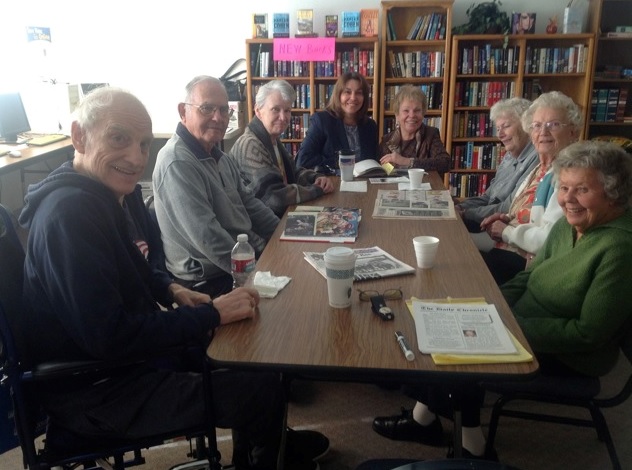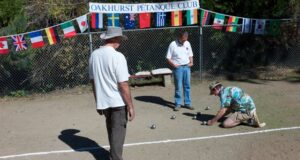OAKHURST – If you are caring for an elderly loved one with Alzheimer’s, dementia, or who is disabled, and you need some time for yourself, the local Caregiver Respite Group currently has several openings.
At the Caregiver Respite Group, your family member enjoys a structured day of activities and socialization provided by two caring volunteers.
They meet every Tuesday from 9:30 a.m. to 1:30 p.m. at the Sierra Senior Center in Oakhurst.
The cost for respite care is $15 per person for the 4 hour day. The arrangement gives caregivers an opportunity to take a break while their family member enjoys a structured day of activities, socialization and personal care assistance provided by kind, experienced volunteers.
Barbara Leath and Jennie Flaherty are regular volunteers for the Caregiver Respite Group, which welcomes loved ones of any caregivers in need of time off, including family members with Alzheimer’s, dementia, and stroke survivors, along with those who are disabled and those who are elderly.
“We are a friendly and relaxed group,” assures Leath. “There is no pressure to participate. If a loved one wants to just listen and watch that is fine.”
Staying at the Senior Center for the program does require guests to be semi-independent with regards to using the bathroom and feeding themselves.
“We will provide minimal assistance, for instance, escorting them to the bathroom and cutting food,” explains Leath. “Wheelchairs and walkers are fine. We encourage the caregiver to stay the first hour or the whole day, whatever they prefer.”
The main purpose of the respite is to give caregivers some time on their own, to run errands, visit the doctor or just stay home and relax. Meanwhile, the caregiver’s loved one has the chance for a few hours of cognitive stimulation, activity, and socializing to decrease the potential for isolation on the side of the person who needs the care.
Participants are first greeted with coffee and a snack followed by easy-going conversation.
“We talk about their weekend and current events and then reminisce about past events that happened in history during the current week. We encourage group discussions,” Leath says.
“We then play games such as dominos, cards, hangman, and anything to get them thinking. We call it mind aerobics. Even someone with a significant degree of cognitive decline can enjoy these activities with some assistance.”
Following lunch the group listens to music and plays more games, often outside, weather permitting. “We try to get them to do a little physical activity, such as a ring toss game, if they are capable. Our goal is to provide a safe, fun environment for the participants,” continues Leath.
According to organizers, families may be reluctant to participate because they don’t know what to expect.
“They are nervous to leave each other,” Leath confirms. “We had a wife of a participant come back early to take a peek to see how her husband was doing. To her surprise he was laughing and participating. From that day on she knew she made the right decision for him and most importantly for herself.”
Leath stresses the importance of caregivers caring for themselves.
“I know it is easier said than done but it is one of the most important things you can do as a caregiver, whether it is asking family members and friends to help out, doing things for yourself that you enjoy, or attending a support group. Taking these actions can bring you some relief. It also may help keep you, the caregiver, from becoming ill or feeling depressed.”
For additional information or to reserve a space call Jennie at (559) 658-8227.




